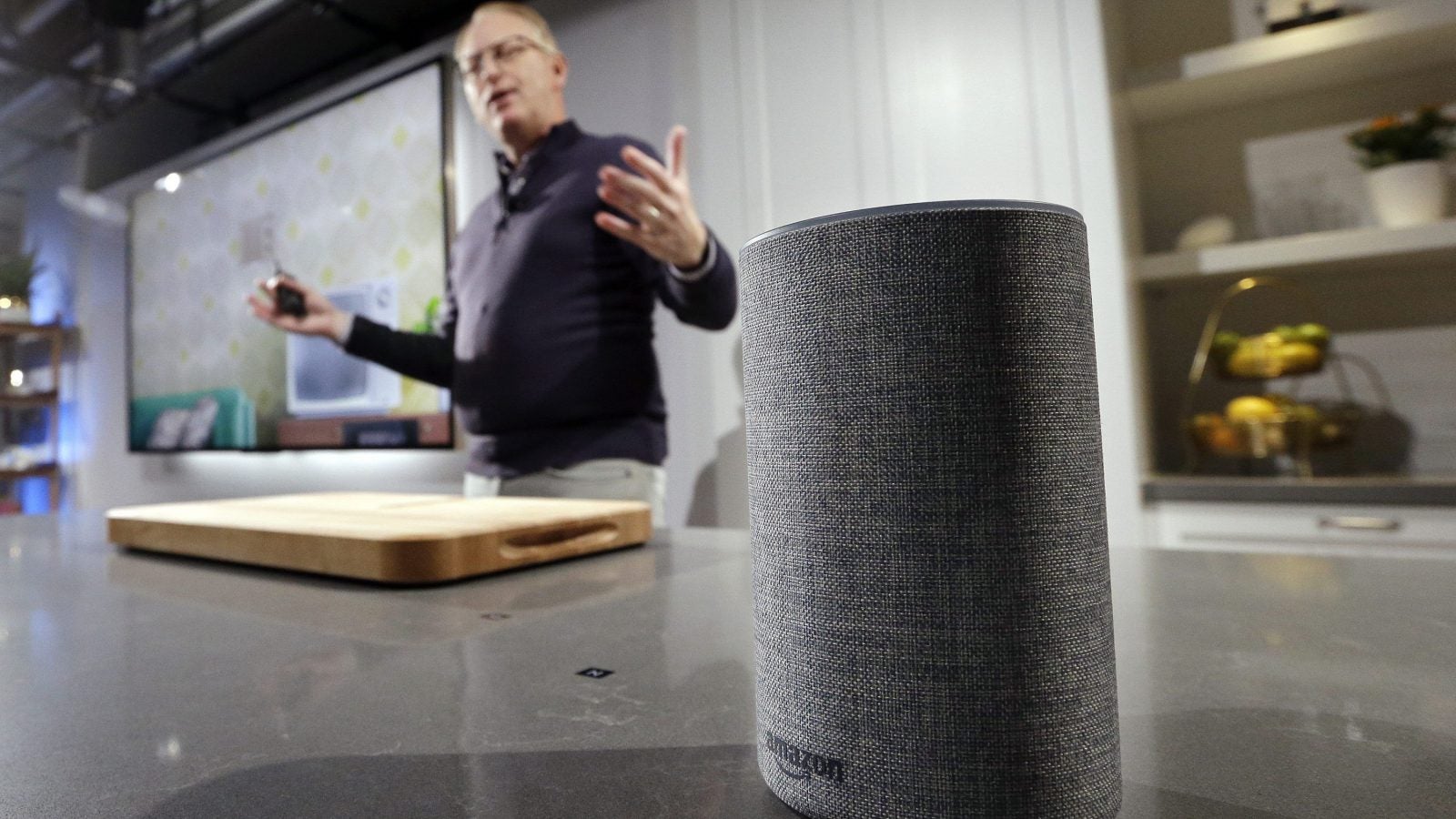Amazon’s plans for Alexa in offices make it worse that the bot is female
Given 95% of secretaries and administrative assistants in the US are women, it seems only natural that as AI assistants conquer the workplace, they, too, should be feminized. After all, demanding tasks of a male digital assistant would be so dissonant. Men give orders, they don’t take them!


Given 95% of secretaries and administrative assistants in the US are women, it seems only natural that as AI assistants conquer the workplace, they, too, should be feminized. After all, demanding tasks of a male digital assistant would be so dissonant. Men give orders, they don’t take them!
Enforcing these sexist thought patterns is the risk Amazon takes with Alexa for Business, its new venture that seeks to bring Alexa, the digital in-home assistant, into your office. Announced in late 2017, Alexa for Business seeks to “empower your business” and make your employees more productive by having Alexa do the work a human secretary might otherwise perform. A female secretary, that is. Unlike Siri, Apple’s digital assistant, who says “I’m genderless. Like cacti,” Alexa will tell you herself that she’s “female in character.” Gender is an intentional feature, Heather Zorn, the director of Amazon’s Alexa engagement team, told Refinery29. In an interview with the publication, she explained that Alexa’s writers and programmers see the bot as a “she” not and “it.”
Amazon demonstrates applications of Alexa for Business in this video:
“Today, people spend too much of their day on tedious tasks at work, like managing their calendars, dialing in to meetings, or searching for information,” Amazon wrote about the Alexa for Business offering on its website. ”Alexa can simplify conference rooms, allowing meeting attendees to start meetings and control the equipment in the room by simply using their voice. Alexa can also do things around the workplace, like providing directions to a conference room, notifying IT about a broken printer, or placing an order for office supplies.”
If Alexa can truly fulfill administrative functionalities without glitches, it will likely be an appealing investment for businesses. Research suggests that nearly half of American workers say they spend 50% of their day on organizational tasks, and over 90% say they spend less than a quarter of their day working on creative business ideas or leads. Enabling employees to produce more innovative, complex work instead of draining time on menial tasks theoretically makes employers more money, while amping employee morale, given autonomy and creativity have been repeatedly proven key to happiness at work.
These money-saving benefits are amplified by the fact that Alexa for Business costs only $7 per month, per device. This monthly subscription could easily add up if your business placed an Alexa in every conference room, or at every employee’s desk, but it’s more than likely to cost less than a full-time administrative assistant. (The average annual salary for administrative assistants in the US as of 2016 is $36,140.)
The drive to replace human assistants with Alexa is an issue unto itself. Regardless, as digital assistants like Alexa enter the workplace—which they will, and already are—their makers should consider how they perpetrate gender biases. Amazon is well aware of this role, having recently given Alexa a “disengage mode” to ensure she does not respond passively to sexual harassment (as she once did). Today, Alexa will also tell you she’s a feminist, adding “As is anyone who believes in bridging the inequality between men and women in society,” and, according to Zorn, she’s also an advocate for diversity and social progressiveness within science and technology.
Whether Amazon can ensure Alexa avoids stereotypes of female subservience, while simultaneously insisting that the digital servant be female, is unclear. As I’ve previously reported, there are real economic incentives (driven by societally conditioned sexism) for AI assistants to have women’s voices. However, it’s difficult to appreciate Amazon’s “new-age” technology without feeling as if the ghosts of 9 to 5 past are being (quite literally) coded into our offices—nearly 40 years after the seminal film, depicting the rampant sexism secretaries face, premiered.
Having employees endlessly demand and request things of Alexa, who responds with stereotypically calm, receptive female kindness, may seem harmless. After all, Alexa is a black cylinder, not a human being. But to ignore the means by which our interactions with technology influence and condition our conscious and unconscious thoughts and biases—especially the expectation that women should heed every professional request, without question—isn’t just ignorant, it’s dangerous.
And, perhaps most importantly, Amazon’s drive to bring a digital servant with a female name and voice into offices worldwide is unnecessary. Changing Alexa’s “business” name to Alexander would, in a timely fashion, flip the script on which gender should listen and serve, not demand and receive in the workplace. Even better, Alexa could receive an entirely genderless name and voice, encouraging employees to earnestly think of it as an it, not a she, or a receptacle for anyone’s misplaced biases.